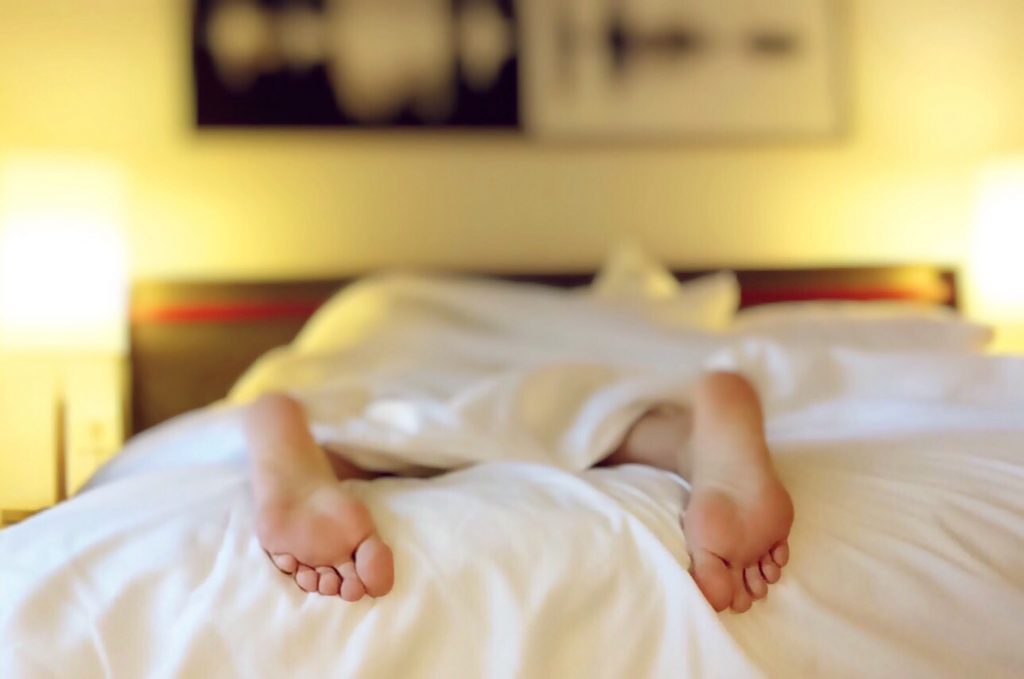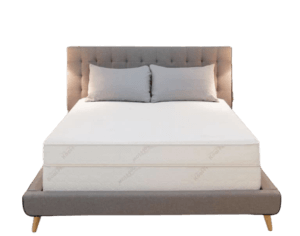In the past, we were all told that we needed 8 hours of sleep. It all seemed very simple. So why do so many of us still feel exhausted all the time? The fact is, there isn’t a clear cut number of hours of sleep that is right for everyone. There are many factors at play such as our age, our lifestyle and the quality of the sleep we’re getting.
Sleep is very important
The importance of getting plenty of good quality sleep, regularly, is pretty much underrated. So many of us work late, or party into the early hours now and again, but this missed sleep can cause havoc with our health and our overall well-being. You may think that you’ll just get a couple of extra hours at the weekend, and all will be well, but sleep doesn’t work like that. Regular sleep is the key. Sleeping for same number of hours, at the same time every night will set you on the right track for feeling bright and alive in the mornings. Juggling your sleep hours around, five hours one night, ten the next, is a recipe for disaster, leaving you feeling sluggish and under the weather.
The impact on your health
Studies have shown that not getting enough sleep can lead to some very serious health problems. When you don’t get plenty of quality sleep, you are putting yourself at an increased risk of stroke, heart disease, heart attack, diabetes, obesity, depression and anxiety, Not to mention that your brain struggles to function when you are sleep deprived, making life and work seem far more complicated and difficult than it should be!
So how much sleep should you really be getting?
We are all different. Some of us live sedentary lives while others are very active. Some of us just naturally need more sleep than others to be able to function at our optimal level. Only you can tell if you’re getting enough sleep, but as a general guideline, based on age, you should be getting the following hours of sleep…
- Babies under 1 year old – 10 – 19 hours
- From 1 to 2 years of age – 9 – 16 hours
- From 3 to 5 years of age – 8 – 14 hours
- From 6 to 13 years of age – 7 – 12 hours
- From 14 to 17 years of age – 7 – 11 hours
- From 18 to 25 years of age – 6 – 11 hours
- From 26 to 64 years of age – 6 – 10 hours
- From 65 years and upwards – 5 – 9 hours
Quality of sleep is very important
You may be reading the table above and now wondering why you always feel tired when you are getting enough hours of sleep in. It could well be that the quality of sleep you are having is just not good enough. While six hours of deep restful sleep may be just perfect for you, six hours of restless sleep will just not be sufficient. If you struggle to get out of bed in the morning, feel sleepy during the day or fall asleep in front of the TV, these are all signs that you are suffering from sleep deprivation. Of course if you were working until midnight last night, or you’ve had a late night out, then you’ll know the reason why this is, but if you’ve had what you’ve thought was several good night’s sleep, then it’s time to focus on the quality of your sleep.
Improving your sleep quality
You’ll sleep best in a room that is dark and quiet. Try not to look at your mobile phone or tablet and try to relax before you go to bed. A soothing bath, some quiet time reading, or some gentle yoga exercises can all help to start the sleep process and put your brain into the right mode to turn off and allow you to get some good, deep sleep.
Discover more tips for getting a good night’s sleep in this video…
Still struggling to get a good night’s sleep?
If you feel you’re doing everything right but still feel tired during the day, then it’s time to look further into the problem.
Medical Issues – It could be that there is a medical cause for your sleeplessness. It’s worth having a word with your doctor so you can rule this out. Additionally, some medications can cause you to have disturbed sleep. If you take any medication, check out the side effects. If sleep problems are listed as one of them, then perhaps consult your doctor and see if they can suggest an alternative medication you could try, to see if that eliminates your sleep issues.
Stress and anxiety – if you’re lying in bed worrying about something, then this is not going to help you sleep. Lack of sleep also makes anxiety worse, so it’s a vicious circle. The problem is, when you’re lying in bed, with nothing else to distract you, it can be easy for worries to creep into your mind, and it’s easier said than done to simply not think about them! Some people find writing down their worries helps. It’s a way to get them out of your mind, and put them aside for the night. This also helps if you have things you need to remember in the morning. if you’re laid in bed thinking to yourself ‘ I mustn’t forget to take that important paper into work tomorrow’ it can really disrupt your sleep. Writing yourself a note for the morning can help you let go of these thoughts.
Check your diet – It’s harder to sleep while our body is digesting food, so it’s a good idea not to have your last meal of the day too late, and resist those late night snacks. Alcohol, caffeine and foods that are high in sugar are all problematic when it comes to getting a decent night’s sleep, so don’t have that nightcap! Additionally, of course, too many fluids close to bedtime and you’ll find your sleep disturbed when your full bladder makes you get up and out of bed to visit the toilet!
Find your own ideal sleep length
Once you’ve worked out how many hours of sleep, you, personally need. Then it’s easier to regulate your sleeping hours. You’ll know if you need an early night. The key to discovering this, is to go to bed at the same time each night and see how you feel the next day. When you get a chance to have a lie in, don’t set an alarm, see when you wake up. If you sleep solidly for ten hours, then your brain and your body most likely needed it. Keep a note of how many hours you sleep each night, and how you feel the next day. Eventually a pattern should emerge and you should be able to determine your perfect number of hours sleep to achieve a happy and healthy mind and body.





